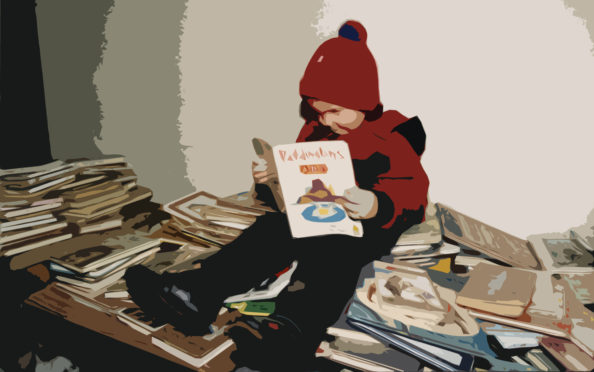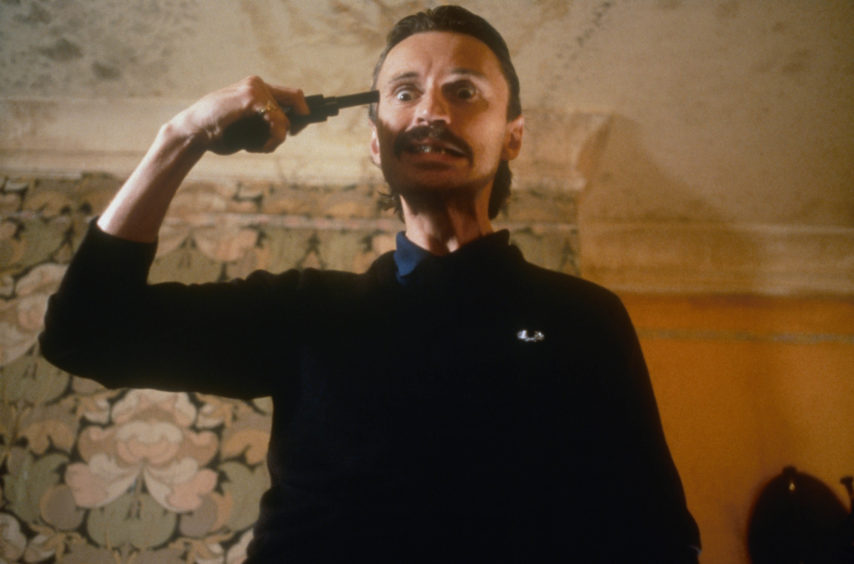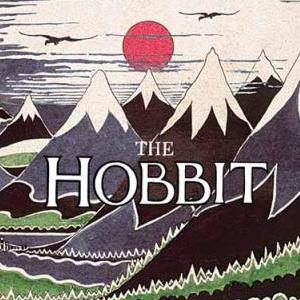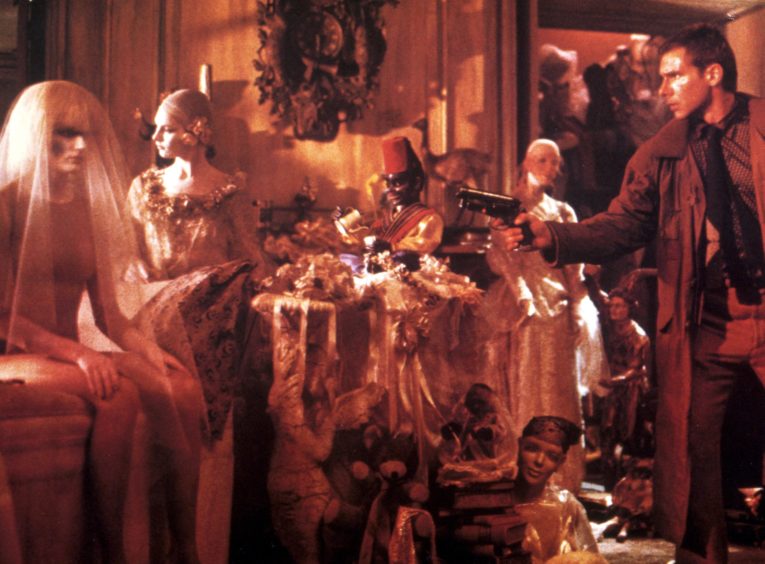When I was wee, I had this marvellous reading device that stopped when you took your eye off it, started again when you looked back and didn’t need batteries or power. It was called a book.
There were hunners of them, mibbe even thousands, and they were all there, free for the taking.
All you had to do was walk down to the library and sign up. Which was fine and handy for me, since my local library was actually attached to my school.
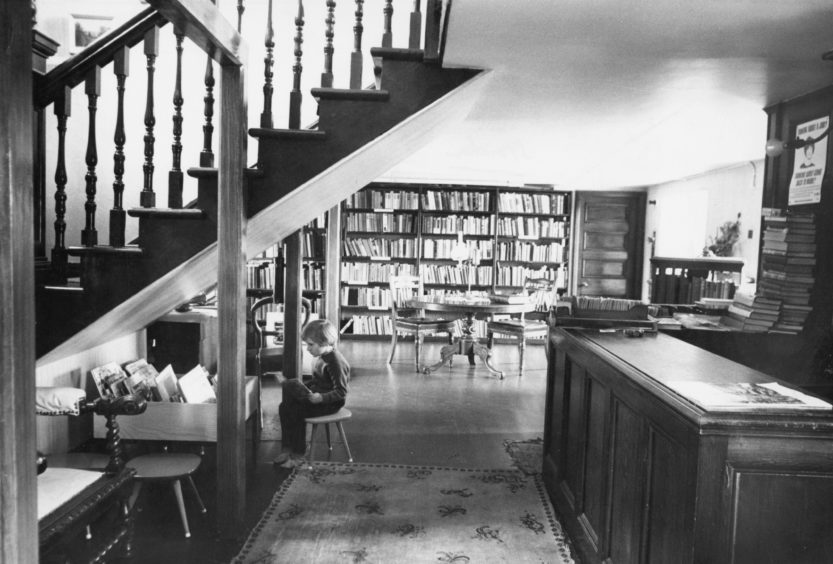
This was back in the days when libraries were oak-panelled, quiet temples of peace and knowledge, where “shhhh” was the order of the day, everything was immaculate and where it should be. Like a temple of literacy, if you will. But with the smell of Brasso and wood polish instead of incense.
It was in this hallowed hall I first made the discovery that within the pages of a book were wonders to be found, stories to thrill you, things to learn…
And learning was very much the thing back in those days. After all, that was what the Ladybird books were all about.
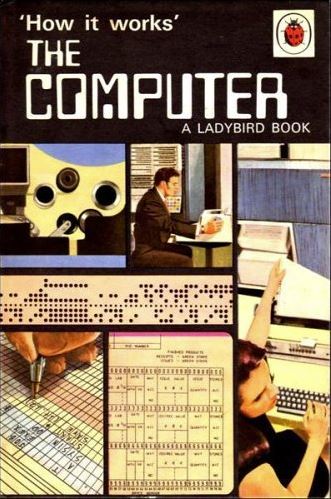 Finding out how computers worked (yes, they were on the go back then, but anything printed about them needed that weird fat and thin lettering), how the Plains Indians lived (without any mention of who it was who destroyed their way of life) and let’s not forget the delightful tales from history. Always felt sorry for King Harold getting arrowed in 1066 (without any mention of Malcolm Canmore who just happened to be King of the Scots at the time).
Finding out how computers worked (yes, they were on the go back then, but anything printed about them needed that weird fat and thin lettering), how the Plains Indians lived (without any mention of who it was who destroyed their way of life) and let’s not forget the delightful tales from history. Always felt sorry for King Harold getting arrowed in 1066 (without any mention of Malcolm Canmore who just happened to be King of the Scots at the time).
It was, in short, a fascinating view of the world from your comfortable middle-class house in the Home Counties of England.
Still, from these tomes sprang a voracious appetite for reading that saw me never out of the library.
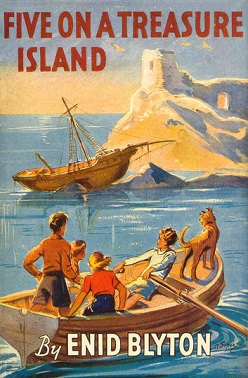 I devoured Enid Blyton, from the Famous Five, through to the Secret Seven – even though she was the fiction equivalent of Ladybird with the middle-class setting on steroids and the added layer of that unpleasant whiff of xenophobia and racism in the air. She never did get round to the Sexist Six.
I devoured Enid Blyton, from the Famous Five, through to the Secret Seven – even though she was the fiction equivalent of Ladybird with the middle-class setting on steroids and the added layer of that unpleasant whiff of xenophobia and racism in the air. She never did get round to the Sexist Six.
The world she described – all lashings of ginger beer and holidays on islands – bore about as much resemblance to my life on an Edinburgh council scheme as Donald Trump does to a stable genius.
It took me a bit of time to
figure out a cricket bat wasn’t
actually a weapon and public
schools were anything but.”
But then, neither did Jennings, Biggles, Billy Bunter or the Swallows and Amazons. Didn’t stop me devouring them all, even if it took me a bit of time to figure out a cricket bat wasn’t actually a weapon and public schools were anything but.
It was to be decades later when I read a book written in the language I grew up hearing in everyday life. It was called Trainspotting.
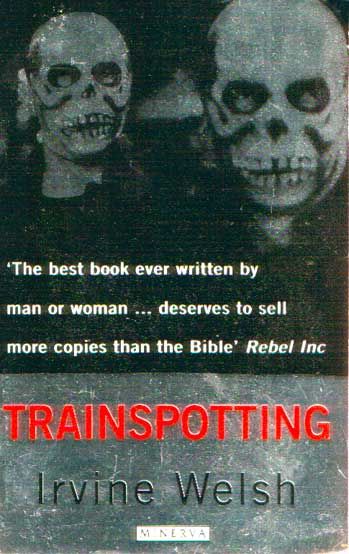
I would like to thank Irvine Welsh for making my life hell in the 90s. Try booking a restaurant table under the name Begbie back then. “You’re not going to stab me are you?” Actually, I might.
I once had the chance to ask Mr Welsh how he decided on the name Begbie. At random from the Phone Book. apparently. If he’d gone on a couple of pages it might have been so different. However, Franco Brown doesn’t have the same ring to it.
Still, back to my carefree, pre-pyscho childhood.
It was about this time I discovered a fascination for the tales King Arthur and the Knights of the Round Table. That led into an interest in mythology, which sparked a fascination for the Norse gods and led, as sure as fate, to The Hobbit.
I hated it. Well, not so much hated it, but just didn’t get it. It was one of those classic books for kids you were supposed to love but didn’t. See also The Water Babies and Wind In The Willows.
I was about 11 years old when my dad changed my reading habits for life. He went to Wembley for one of the Home Internationals (we saw him in a crowd shot on the telly) and came back with presents for us all.
Mine was a book called I, Robot by Isaac Asimov. It had a metal head with glowing red eyes on the cover. Inside was a rich seam of science fiction to be mined by an impressionable young mind. And we were off.
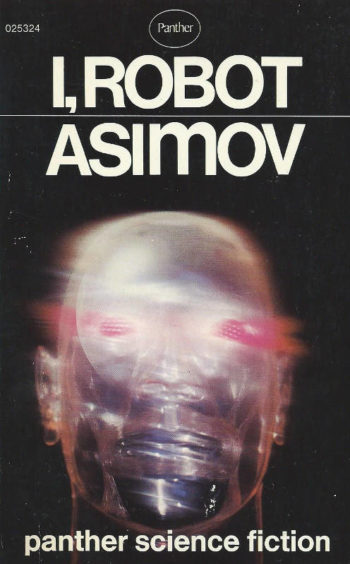
I scampered through SF like there was no tomorrow, but the children’s section in the library was a bit light on those. Which was why I was given special dispensation by the stern, but not really, librarian to take books out of the adult section, introducing myself to masters of the art like Robert Heinlein, Philip K Dick and Frank Herbert.
Who now, some might ask? Not as niche as you think. Ask Hollywood. Heinlein gave us Starship Troopers, Dick was the inspiration behind Blade Runner and Herbert wrote Dune, about to be given its second big screen outing as one of the major releases of this year. I was reading all these before they were even a twinkle in a film producer’s eye.
I’d max out my three ticket limit for library books, then spend the next few days locked away in a wee world of my own and be back in the library by the end of the week. My parents didn’t think I was getting out to play enough. Who wants to be picked last for a kickabout in the street when you can ride a sandworm on Arrakis?
Reading is a habit that has lasted a lifetime. Sure, I’m not as voracious as I was, but it is still my comfort and joy. Even if it is on a Kindle. Don’t judge me. You ever tried carrying a George RR Martin book about with you all day?
But one thing that remains
as strong and undiminished
as ever is my love and
respect for libraries.”
But one thing that remains as strong and undiminished as ever is my love and respect for libraries. They might not smell of Brasso anymore, but they still have hunners, if not thousands, of books and all for free.
And on the wall of Stonehaven Library there was a very apt quote from one of those very heavy Game Of Thrones books: “A reader lives a thousand lives before he dies… the man who never reads lives only one.”
